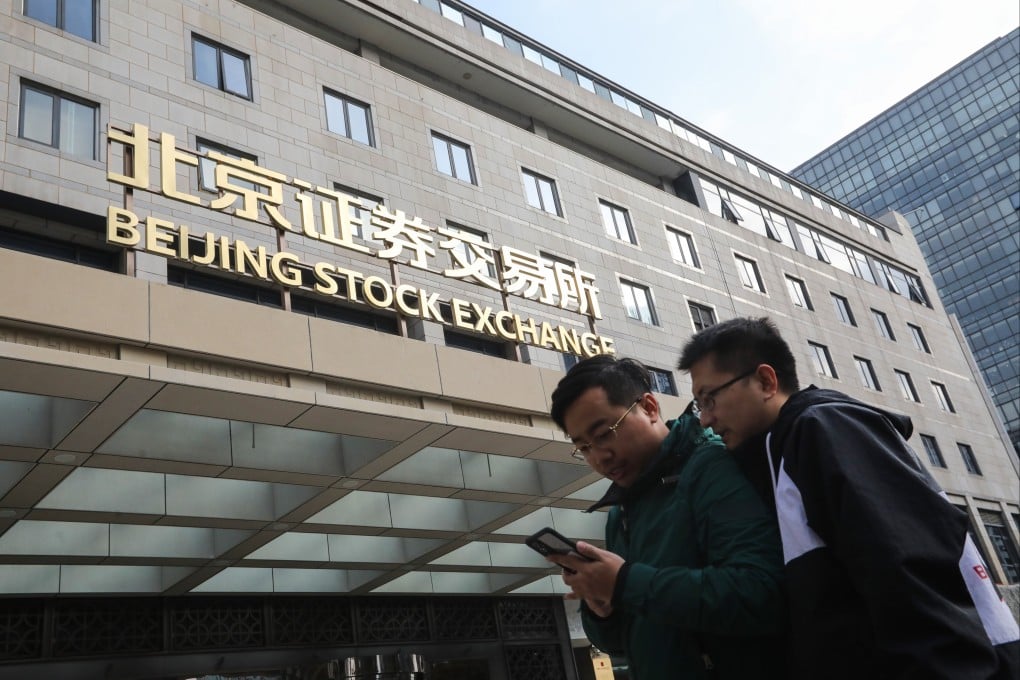Advertisement
Beijing Stock Exchange reforms will boost appeal, valuations of companies listed on China’s smallest bourse, say analysts
- A 19-point set of guidelines issued by the regulator on Friday called for listings of better-quality companies and greater participation by overseas investors
- The push is part of a drive to shore up China’s US$11 trillion stock market after top Communist Party officials asked regulators to bolster the capital market and revive confidence
Reading Time:3 minutes
Why you can trust SCMP

Zhang Shidongin Shanghai
A blueprint aimed at revamping the fledging Beijing Stock Exchange will boost the appeal and valuations of the companies trading on mainland China’s smallest bourse in the long run, according to analysts.
A 19-point set of guidelines, which was issued by the China Securities Regulatory Commission (CSRC) on Friday after the market closed, called for listings of better-quality companies, more mutual-fund products to track the market and greater participation by overseas investors.
The Beijing exchange, founded in 2021, aims to improve significantly in scale, efficiency and liquidity in the next three to five years, and build itself into a bourse of strong branding and influence that will be a hub for innovative start-ups in another five to 10 years, the CSRC said in a separate statement.
Advertisement
The push is part of a drive by the CSRC to shore up China’s US$11 trillion stock market after top Communist Party officials asked it to bolster the capital market and revive confidence in a late July Politburo meeting.
Last month China halved the stamp duty on stock transactions, lowered the requirement ratio for margin trading and restricted divestment by major shareholders of listed companies trading below their book value or initial public offering prices.
“The policy support for the Beijing exchange has exceeded the market’s expectations and all these reform measures are expected to be put in place in the following half year,” said Liu Jing, an analyst at Shenwan Hongyuan Group in Shanghai. “These measures will have a profound impact and be conducive to the bourse’s development in the long run. With the price-to-earnings multiple for the Beijing market near its record low, it’s due for a decent rebound.”
Advertisement
Advertisement
Select Voice
Select Speed
1.00x